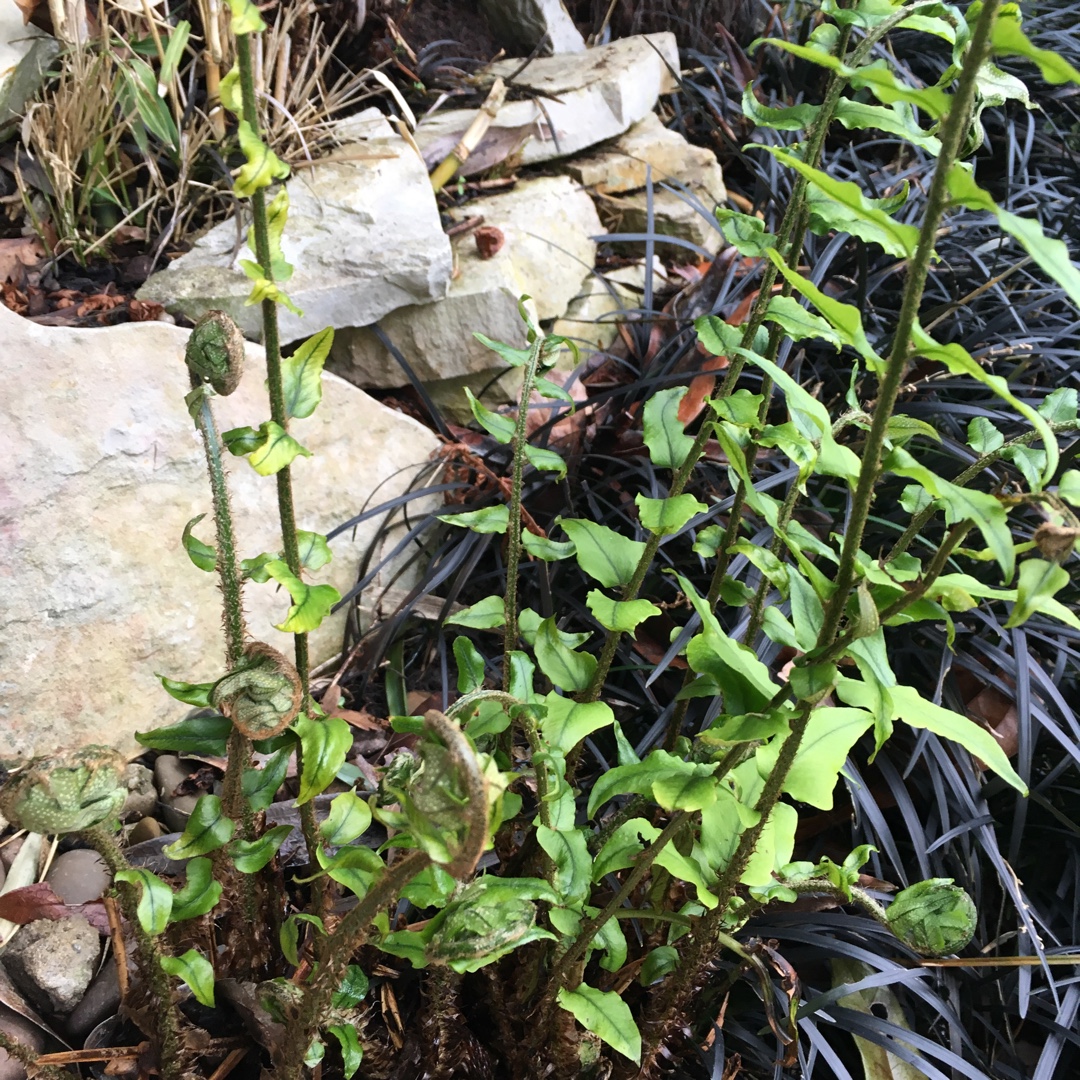
Adiantum Trapeziforme
Diamond Maidenhair Fern
A delicate fern with long fronds of green leaves produced along black or dark brown strong stems. It will spread to form a graceful group in time. Do not mulch this plant. Use the dead leaves to cover through the winter. Diamond Maidenhair Fern is an evergreen fern that can reach more than 6" tall by 8" wide, with broad triangular leaves on long black stalks. The leaves are mid-green and slightly glaucus on the underside. This fern makes good ground-cover for shaded areas with little chance of frost. Best suited to temperatures above 57 degrees Fahrenheit, and so often used as a houseplant. It is very important that this fern does not dry out, so water when the soil is dry to the touch.
Contributed by @CherryBlossom
-
Partial shade to deep shade
-
Occasional watering
-
Full Frost Hardy: 5F (-15°C)
-
Moist and free draining
Common name
Diamond Maidenhair Fern
Latin name
Adiantum Trapeziforme
type
Fern
family
Pteridaceae
ph
5.0 - 8.5 Acid - Neutral
Plant & bloom calendar
-
Best time to plant
full grown dimensions
 0.35 M
0.25 M
0.35 M
0.25 M
Adiantum Trapeziforme
A delicate fern with long fronds of green leaves produced along black or dark brown strong stems. It will spread to form a graceful group in time. Do not mulch this plant. Use the dead leaves to cover through the winter. Diamond Maidenhair Fern is an evergreen fern that can reach more than 6" tall by 8" wide, with broad triangular leaves on long black stalks. The leaves are mid-green and slightly glaucus on the underside. This fern makes good ground-cover for shaded areas with little chance of frost. Best suited to temperatures above 57 degrees Fahrenheit, and so often used as a houseplant. It is very important that this fern does not dry out, so water when the soil is dry to the touch.
Planting Season
From Mid Spring TO Late Spring
In spring plant in a moist and fertile position in a shady or partially shaded site.
Propagation by spores
From Early Autumn TO Mid Autumn
Collect spores in the Autumn, when they are ripe, and sow spores under glass on top of compost, and place the pot or tray in a resealable polythene bag in bright light. After 2-8 weeks the top of the compost should turn green, and prothallia should appear. Mist lightly to encourage fertilisation. After several more weeks the first fronds should appear. When the plants are about 2" high, pot into separate pots, but keep the humidity high by putting the pots in polythene bags








